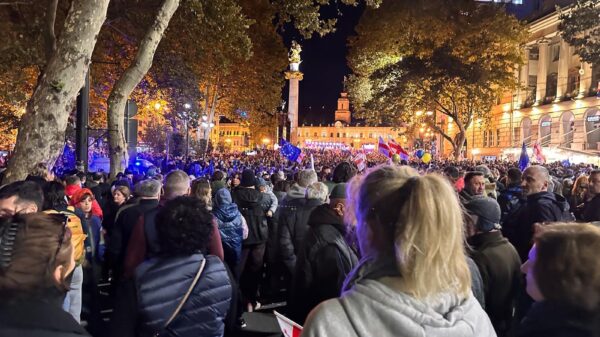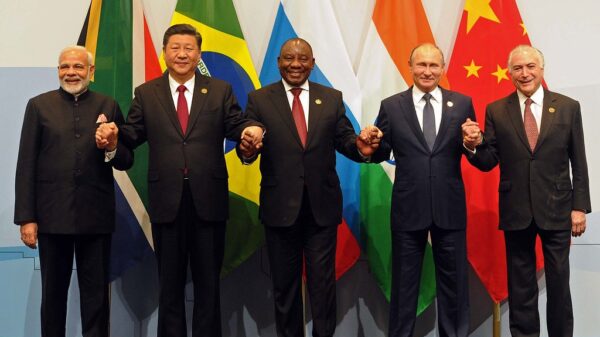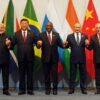In coordination with the King’s College London (KCL) Foreign Policy and Security Conference team, Roar News has been granted the opportunity to speak to Ambassadors and High Commissioners from a range of embassies across London. On Tuesday 22 November, News Editor Justine Noble sat down with Mr Zahid Rastam, Deputy High Commissioner for Malaysia, to discuss Malaysia’s recent elections and ongoing political landscape.
For those of you who have not been keeping up with the intricacies of Malaysian politics, a recent election has been hailed as a prospective stabilising point for the ongoing political turmoil. Since uncertainty erupted from the 1MDB scandal in 2018, Malaysia has struggled to regain balance, but a hung parliament looming on the horizon has not comforted the wider Malaysian electorate. Mr Rastam – although a civil servant to whom it is important to remain politically neutral – discussed certain elements of this electoral period with us, and unpacked why it has potential to be a turnaround for Malaysia.
Talking Politics: The Election Itself
We began by asking Mr Rastam what he believed to be the biggest misconception about Malaysia in the UK media. He rightfully characterised the UK media as being sensationalist at times and that as a result, “negative news or negative things come out a lot more than the positives.” To Mr Rastam, this is “a shame because when we think about Malaysia, there’s a lot more positives.” For example, he is quick to accredit Malaysia for it’s multiculturalism, and how it has managed to maintain harmony between it’s diverse “multiracial, multi-ethnic, multi-religious” factions of society. He further cites Malaysia’s development as a democracy since its freedom from British colonialism in 1957 and argues that it deserves to be seen for the “positives to [its] story” – a story “that hopefully inspires other people in other countries.”
When asked about his role as a High Commissioner and which elements of his job he finds important, it’s not surprising that Mr Rastam finds his most pressing concern to be bilateral relations. The partnership between Malaysia and the UK, to him, is important because of “our shared history”, “the important people-to-people interaction in terms of students/people coming to visit” and the fact that “the UK still remains as a preferred destination for Malaysians when they go overseas”. He sees cross correspondence between the two nations as being the fundamental basis of his role, as his job is to “build on that, strengthen it, enhance it”.
The interview then progressed onto the more specific topic of Malaysia’s most recent snap election, and whether it was a success for Malaysia – even if Ibrahim Yaakob’s re-election seemed unlikely. He reaffirms that as a civil state official, he is “very strict about [his] neutral view in terms of politics.” With this in mind, he says it appears clear that “Malaysians want change… it’s democracy”. Whatever the following period after the election proves, he remains sure that “whichever government is formed will keep the best interest of the country at heart, and ensure that our peace, stability, prosperity and democracy will continue.”
A key distinction between this election and those hosted prior in Malaysia is that this snap election, at time of interview, posed the threat of a hung parliament. Mr Rastam was asked whether the possibility of a hung parliament increased political uncertainty, or if the disintegration of the two party system forecast sunshine on the horizon for Malaysian stability. He highlights that because of Malaysia’s colonial history, the nation never really had a two party system comparable to that of the UK or the United States:
“We never really were two party, we were just a bunch of coalitions or independent parties, and this election was similar.”
The hangover of local elections underneath a British colonial umbrella state is still strong in the Malaysian electoral landscape.
Some publications have been reporting this election to be ‘Malaysia’s Youth Election’, with under-21s heading to the polls for the first time since legislation lowered the voting age to 18. Although Mr Rastam clarified that “further information needs to come out in terms of the actual breakdown of the votes”, he recognised that turnout in this election is higher than usual- a logical continuation of the increase in the electorate. As for perspectives on how the widened youth bracket will influence politicians, Mr Rastam remained neutral.
Lies Have No Legs, but Scandals Have Wings
The 1MDB scandal has left a dark mark on Malaysian politics- both for Malaysian voters and people across the world. Leaked documents accused Najib Razak, then prime minister, of embezzlement which allegedly stole $4.5bn from a Malaysian Development fund. The scandal was also affiliated with Western corporations such as Goldman Sachs, and the production fund of the film The Wolf of Wall Street. The mess that ensued after the scandal is yet to be fully cleared.
We were conscious when mentioning the scandal that Mr Rastam may be unable to remark on whether it had an influence on the Malaysian people’s view of their government. As expected, he remained ever-diplomatic:
“Corruption is a big issue that is important to the mind of voters… it’s been documented by all sides that this has had an effect in terms of how people choose to vote.” Followed with a question about the scandal influencing this current electoral period, Mr Rastam remarks that “this would require further in depth study, but it’s not hard to make the conjecture between what the scandal was and some of the results we see in this recent election.”
The international dynamic of this scandal raises a multitude of questions, but we chose to focus on the foreign policy aspect. Roar was interested to know where Mr Rastam believes foreign policy is headed in the next decade for Malaysia. Despite the mess of the last few years, he believes that foreign policy for Malaysia will remain the same; still focused on principle, pragmatism, and non-alignment. When segued onto domestic politics, Mr Rastam emphasised that this will change based on whichever government is formed after the election:
“The true interests of the citizens at heart are that development remains priority.”
For a country with such a recent history of distrust in politicians, it comes as no surprise that development and progression remain top of the agenda.
Looking in the Political Mirror
Political instability is a sentiment which connects the UK with Malaysia. As students in London, we are more familiar than we’d like to be with electoral turnover and political dissatisfaction. We asked Mr Rastam if he believed there were any lessons the UK could learn from Malaysia.
“I think there are quite a number of things that they can learn”, he is quick to reply. He discusses prison rehabilitation, and highlights that Malaysian prisons run “schemes to provide work, skills, training, and an opportunity for inmates to make a living so that when they go back into the general population they are able to integrate into society.” He does remind us that these schemes do exist in the UK, but they are not as established or successful:
“HM Prisons have come and visited Malaysian prisons to learn from [their rehabilitation schemes]. This is a very small thing, but it’s one thing that’s important.”
In continuation of this, he specifies that Malaysia has more success in rehabilitation schemes for people radicalised towards terrorism. As the UK reoffending rate was 28% in the year 2019/20, in Malaysia it is only 15% – 0.38% for those who take part in community correction schemes. If take these facts and figures at face value, it is clear that the UK has strong lessons to learn from Malaysian prison reform.
Food for thought
In a markedly lighter tone than prison reform, we ended the interview by asking Mr Rastam where our readers can find the best Malaysian food in London. He praises London for it’s multitude of options, being home to a majority of the 80,000 Malaysians living in the UK. Remaining true to his diplomacy, he says that he “wouldn’t place one better than any other one” and that “they’re all pretty good in [his] view.” He also says that a lot of restaurants in Chinatown are actually Malaysian beneath the surface, or at least serve a variety of Malaysian dishes. It seems the multicultural makeup which distinguishes Malaysia is reflected in the London restaurant scene.
We thank Mr Rastam for his time and extend our gratitude to the Foreign Policy and Security Conference for aiding Roar News in organising this interview.


















